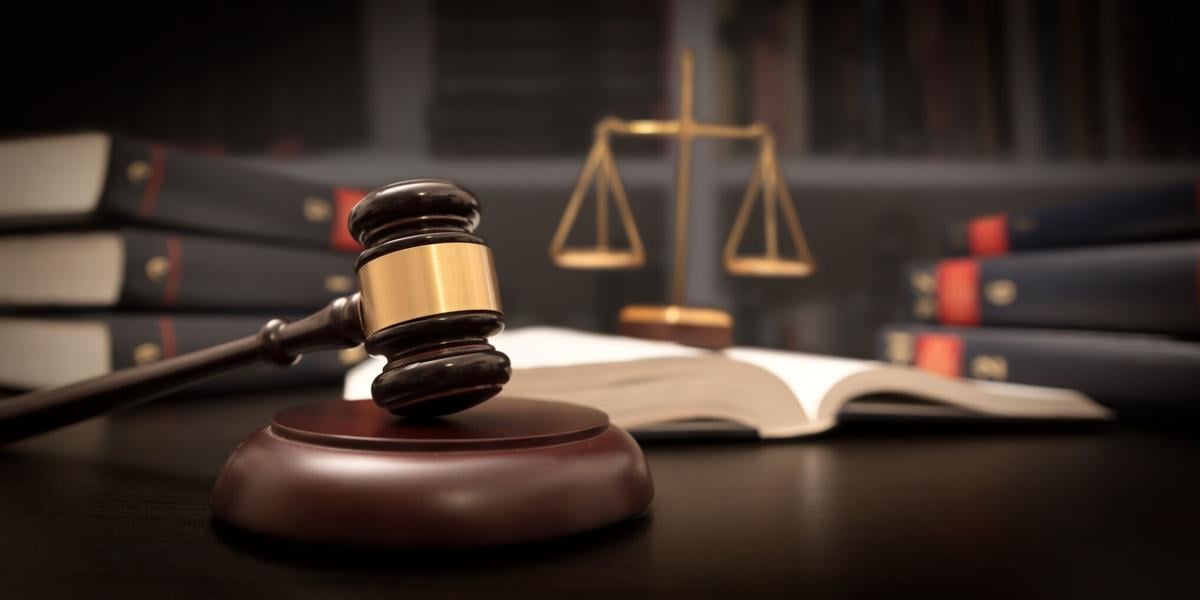PHOENIX — A judge on Monday blocked a rural Arizona county's plan to conduct a full hand-count of ballots from the current election — a measure requested by Republican officials who expressed unfounded concerns that vote-counting machines are untrustworthy.
The ruling from Pima County Superior Court Judge Casey F. McGinley came after a full-day hearing on Friday during which opponents presented their case and called witnesses. An appeal of the judge's decision is likely. Election Day is Tuesday.
McGinley said the county board of supervisors overstepped its legal authority by ordering the county recorder to count all the ballots cast in the election that concludes on Tuesday rather than the small sample required by state law.
The opponents — a group of retirees who sued in court to stop a full hand-count — argued that state law only allows a small hand-count of early ballots to ensure the counting machines are accurate. Group members argued that a last-minute change would create chaos and potentially delay certification of the election results. Cochise County Elections Director Lisa Marra also opposes the plan for the expanded count and testified about how it could delay results and imperil ballot security.
The lawsuit only challenged a full hand-count of an estimated 30,000 early ballots, but the ruling appears to block a full hand-count of both the early ballots and those cast on Election Day.
McGinley wrote state election laws lay out a detailed procedure for randomly choosing which Election Day ballots are chosen for the hand-count.
“This entire process would be rendered superfluous if the court were to construe (that section) to initially select 100% of the precinct ballots as its starting point,” the judge wrote.
The two Republicans who hold the majority on the three-member Cochise County board of supervisors voted to go ahead with the full hand-count of the early ballots despite opposition from the county's elected Republican attorney and the election director for Democratic Secretary of State Katie Hobbs. Both said a full hand-count of early ballots is illegal under state election law, which only allows 1%, or 5,000 of the early ballots, whichever is less, to be tallied to ensure the accuracy of the machines. Hobbs is running for governor.
Attorney General Mark Brnovich, a Republican, issued an informal opinion on Oct. 28 siding with the board.
Republican Cochise County Recorder David Stevens, who has been charged by the county board of supervisors with conducting the count, testified last week that he has plans to do so in one of four locations he has scouted in the Sierra Vista. The city is the largest in the border county of about 130,000 residents. Located southeast of Tucson, the county extends to the New Mexico border.
Stevens has never overseen a hand-count; that’s Marra’s role. She testified on Friday that she plans to conduct the normal post-election hand-count as usual. She also criticized the method Stevens chose to use, saying it was prone to errors.
The two Republican Cochise County supervisors who voted in favor of the 100% hand-count rather than the small sample that is counted in every other election were pushed to do so by people who believe former President Donald Trump’s unfounded claims that fraud or problems with vote-counting machines led to his loss in 2020. The lone Democrat on the board opposed the hand-count.
A Nevada county is also pushing a full hand-count to mollify Trump supporters but is battling with the secretary of state over rules for the count, while leaders of another GOP-led Arizona county rejected a similar effort last week.
The hand-count would have covered four races chosen by lot: one statewide elected official, one federal race, one from the state legislature and a statewide ballot measure.
Marra testified that holding a full hand-count would imperil the county's certification of the election, which is set to happen by Nov. 22. That could in turn delay the statewide certification, which is expected to trigger recounts because the threshold for mandatory recounts was greatly increased by the Legislature earlier this year. In a worst-case scenario, she said, that could lead to delays in seating newly elected officials in January.





